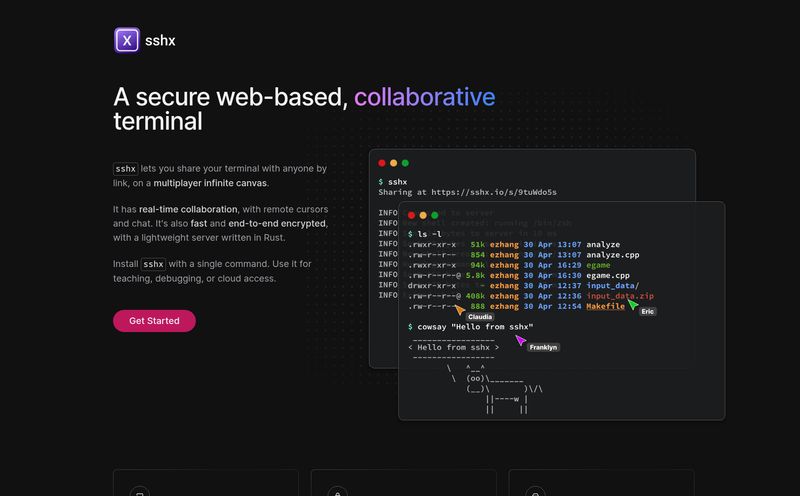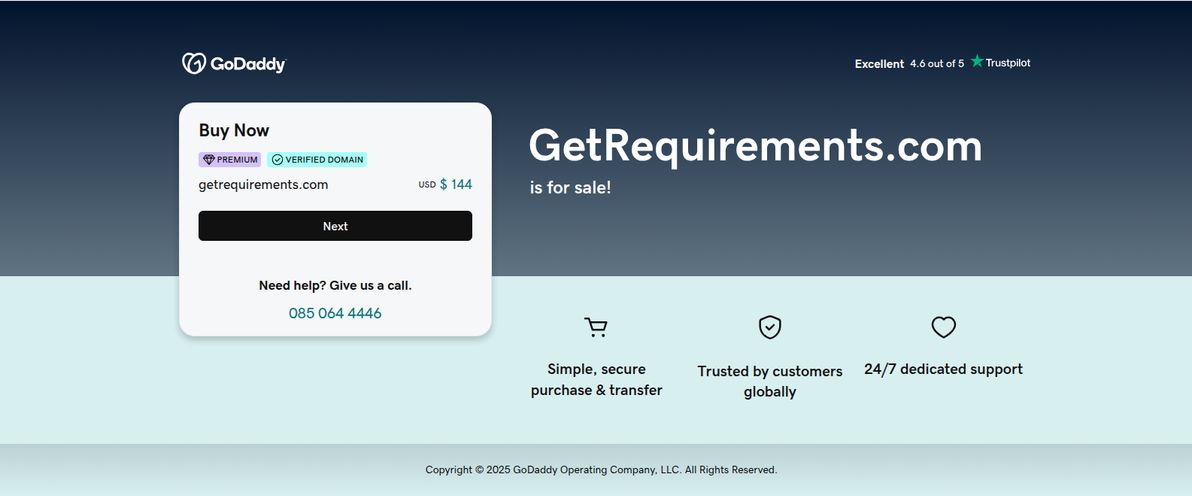There’s a giant, Omegle-shaped hole in the heart of the internet. For years, it was the go-to place for spontaneous, chaotic, and sometimes, genuinely wonderful random conversations. It was the digital equivalent of striking up a chat with a stranger on a park bench, except that park was occasionally on fire. When Omegle shut down, it left a void. Many have tried to fill it, but most just ended up being pale imitations, often with the same old problems.
Enter Thundr.tv. The name sounds like it should be a weather app or a pro-wrestling network, but it’s actually one of the newest contenders in the anonymous video chat arena. And its got a trick up its sleeve that actually caught my attention: real-time AI moderation. But does it work? Is this the platform that finally tames the wild west of random chat? I decided to take a look.

Visit Thundr.tv
So, What Exactly is Thundr.tv?
At its core, Thundr.tv is exactly what you think it is: a platform that connects you with random strangers for instant video and text chats. You hit a button, and boom, you’re face-to-face (or text-to-text) with someone from somewhere else in the world. It’s a simple, powerful formula that has captivated people for years.
The familiarity is comforting. But the platform’s entire premise hinges on one major difference that sets it apart from the ghosts of chat-roulette past. It’s not just throwing two people into a digital room and hoping for the best. It's trying to be the digital bouncer for the internet's wildest party.
The Big Deal: AI-Powered Moderation
This is the secret sauce. Thundr.tv claims to use artificial intelligence to monitor chats in real-time to enhance user safety and filter out the… well, the stuff you don’t want to see. We all know what that means. For anyone who spent more than ten minutes on Omegle, you know the kind of content that became its downfall.
How Does it Actually Work?
The platform’s AI is supposedly watching and listening, not in a creepy “I’m always listening, Dave” HAL 9000 way, but more like a vigilant chaperone. It’s designed to detect inappropriate behavior or content as it happens and, presumably, take action—whether that’s ending a chat, issuing a warning, or banning a user. This is a massive technical challenge. Real-time analysis of video and text streams for nuanced bad behavior is something even the tech giants struggle with. The idea of a smaller platform cracking this code is, to say the least, ambitious.
Is it Foolproof? Let's Be Real.
No. And we shouldn’t expect it to be. AI moderation is an incredible tool, but it's not magic. Anonymity is a double-edged sword; it fosters openness but can also attract people with bad intentions. There will always be users trying to game the system. I’ve seen AI that can write a sonnet but can’t tell the difference between a sarcastic comment and a genuine threat. So while Thundr.tv’s approach is a huge step in the right direction, it's wise to go in with a healthy dose of realism. Its an improvement, not an iron-clad guarantee of a perfect experience.
"I've always believed the appeal of random chat wasn't the shock value, but the potential for genuine, fleeting connection. The challenge is filtering out the former to get to the latter. AI might just be the tool for that job."
My First Impressions After a Few Chats
Okay, theory is great, but what’s it like to actually use? I hopped on for a session, half-expecting the usual chaos. The interface is clean and minimalist. No frills, no fuss. You’re there to chat, and it gets you there fast.
My first few connections were… normal. A student from Brazil practicing his English. Someone from India showing me their new guitar riff. A person from Germany who just wanted to talk about the weather. It was surprisingly wholesome. I didn't encounter anything sketchy, which, in this space, is a resounding victory. Of course, this is just my anecdotal experience. Your mileage may vary, but it felt cleaner than what I remembered from the old days.
Weighing The Good and The Not-So-Good
No platform is perfect, so let’s break it down. The massive advantage here is obviously the promise of a safer environment thanks to the AI. That alone makes it a compelling Omegle alternative for people who were chased away by the lack of moderation. The ability to connect instantly and anonymously remains the core appeal, and Thundr.tv delivers that smoothly.
On the flip side, you're placing a lot of trust in an algorithm. There’s the risk of false positives—the AI misinterpreting something harmless and ending your chat. And as I mentioned, determined trolls will always look for workarounds. The reliance on AI means there might not be a human moderator to appeal to if something goes wrong. It's a trade-off: you get proactive, instant moderation, but you might lose some of the nuance a human could provide.
Thundr.tv vs. The Old Guard (Omegle, Chatroulette)
Putting Thundr.tv next to its predecessors is like comparing a modern city with a frontier town. Omegle and early Chatroulette were lawless. It was part of their charm and ultimately their demise. They relied almost entirely on users policing themselves, which we all know how that turned out. Thundr.tv is built on a fundamentally different philosophy: that you can have spontaneous, anonymous connection without wading through a swamp of filth. It’s trying to build guardrails where there were none before. It might feel a bit less “wild,” but for most people, that's probably a good thing.
What's the Catch? A Look at the Pricing
This is usually where the other shoe drops. So, what does Thundr.tv cost? As of writing this, I couldn't find a pricing page or any mention of a subscription. This suggests the platform is currently free to use. This is great for accessibility but makes me wonder about the long-term business model. Running powerful AI moderation on live video streams isn’t cheap. It's likely supported by ads or may introduce premium features down the line. For now, though, it’s free to jump in.
FAQs about Thundr.tv
Is Thundr.tv really anonymous?
Yes, in the sense that you don't need to create an account or share personal information to start chatting. However, like any website, your activity is subject to their terms of service and moderation policies. True anonymity on the modern web is a complex topic.
Is Thundr.tv actually safe to use?
It appears to be safer than past alternatives due to its real-time AI moderation, which actively works to filter out inappropriate content. However, no platform is 100% safe, and users should always exercise caution when interacting with strangers online.
How is Thundr.tv different from Omegle?
The primary difference is the proactive AI moderation. While Omegle had some moderation, it was notoriously ineffective. Thundr.tv builds its entire platform around the concept of AI-driven safety to create a better user experience.
Is Thundr.tv free?
Currently, it appears to be completely free to use. There are no subscription fees mentioned on the site.
Can I use Thundr.tv on my phone?
Yes, the platform is web-based and seems to work well on both desktop and mobile browsers, so you don't need to download a separate app.
Final Thoughts: Is Thundr.tv Worth a Shot?
Look, I'm a jaded SEO guy. I've seen a hundred platforms promise to revolutionize a space and then fizzle out. But I have to admit, Thundr.tv has me intrigued. It’s not just another clone; it’s an evolution. It’s taking the core concept of what made Omegle magical—that spark of random human connection—and trying to build a better, safer home for it.
Will it succeed? Time will tell. But in a world where online interactions feel increasingly curated and transactional, the idea of a truly spontaneous and moderated chat platform is more appealing than ever. If you miss the days of random video chats but don't miss the… unpleasantries… then Thundr.tv is absolutely worth a click. It might just restore a little bit of your faith in talking to strangers on the internet.
References and Sources
- BBC News: Omegle chat site shuts down after abuse claims
- TechCrunch: Omegle, the pioneering chat site that connected strangers, shuts down



